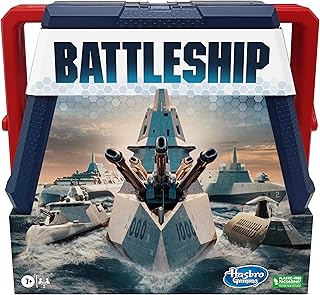5 important factors worth considering when looking for the best board games for 7 year olds
When selecting board games for 7-year-olds, it’s important to think about more than just fun. Consider how educational the game is, if it encourages social interaction, and if it provides challenges that are right for their age. By looking at these important factors, you can find games that are both entertaining and help children learn and connect with others.
See our guide to the best board games for 7 year olds.
Age-appropriateness
When choosing board games for 7-year-olds, it’s important to find a good mix of fun and learning. Games that are too easy might not keep their interest, while games that are too hard could make them feel frustrated and give up. It’s best to look for games that are both entertaining and challenge their minds in a way that’s right for their age.
Playing board games can also help kids learn how to work together and improve their social skills. Games that focus on teamwork, communication, and strategic thinking are not only enjoyable but also teach important skills. By picking games that encourage friendly competition and working together, kids can practice facing obstacles, collaborating with others, and being a good sport. The ideal board games for 7-year-olds should help them grow in all areas, combining fun with valuable lessons in a way that keeps them engaged.
Educational value
When picking out board games for 7-year-olds, focusing on their educational value can help improve their thinking and social skills. These games give kids a chance to learn while having fun. Games that involve math, strategy, and problem-solving can engage young minds and encourage critical thinking. Also, playing board games can teach important social skills like teamwork, communication, and sportsmanship. By promoting collaborative play, board games help children learn how to interact with others in a positive way.
Choosing board games for 7-year-olds that are both fun and educational can be a great way to support your child’s development. Games that challenge decision-making, memory, and creativity can help kids think creatively and sharpen their analytical skills. Additionally, games with storytelling or historical themes can inspire curiosity and expand their knowledge in a fun way. By mixing learning into playtime, parents can nurture their child’s love for learning and help them build skills that will benefit them in school and beyond.
Number of players
When you’re choosing board games for 7-year-olds, the number of players is important. Games that allow multiple players can help kids interact socially and work together. This can improve teamwork, critical thinking, and communication skills as they play. It’s best to pick games that have the right number of players so that everyone can join in and have fun without feeling left out.
You should avoid games with too many players because it can get chaotic and kids may not enjoy it as much. It’s better to choose games that are made for a specific number of players or have options for different group sizes. This way, parents and caregivers can create a fun gaming experience for 7-year-olds. Quality is more important than quantity when it comes to the number of players, to make sure kids have a positive and enjoyable time that matches their interests and needs.
Complexity of rules
When picking board games for 7-year-olds, the rules should be just right – not too easy or too hard. Some people think that difficult rules can help kids think and plan better, while others worry it might make the game less fun. Board games need to be challenging, but not too tricky, so kids can use their brains without getting frustrated.
Complicated rules can make kids lose interest or get upset, keeping them from enjoying the game. Simple rules are important for getting kids interested in board games early on, so they can understand the game quickly, play smoothly, and have more fun. The main goal is to create a positive experience that combines fun, learning, and socializing, so it’s important to think about how complex the rules are when choosing board games for 7-year-olds.
Theme and topic of interest
When picking out board games for 7-year-olds, it’s important to think about what they like and what themes they enjoy. Choosing a game with a theme that grabs their attention can make playing more fun for them. Themes like exploring new places, imaginary worlds, or animals can spark a child’s imagination and make them curious. This can help them feel amazed and be creative while playing. A good theme can also help kids learn things like problem-solving, thinking ahead, and getting along with others. By picking games that match a child’s interests, you can make sure they have fun and learn at the same time.
While theme is a big part of choosing board games for 7-year-olds, it’s also important to think about the subjects the games cover. Games that teach things like math, language, or science can help kids practice what they know in a fun way. Games that encourage teamwork, being fair, and caring about others can help kids learn good habits and ways of thinking. By picking games that have interesting themes and teach important topics, parents and caretakers can give kids a good mix of fun and learning. This can help children grow in their thinking, emotions, and how they get along with others in a well-rounded way.
Conclusion
Board games for 7 year olds offer a lot of fun and can help kids learn important skills. When kids play these games, they practice thinking strategically, making decisions, and interacting with others. These games are more than just something to do for fun – they can help kids develop their brains, be creative, and work well with others. Playing board games with kids is not just a way to pass the time, it’s a way to help them grow and learn. Want more info on doctors k2 mk7, check the best doctors k2 mk7.
